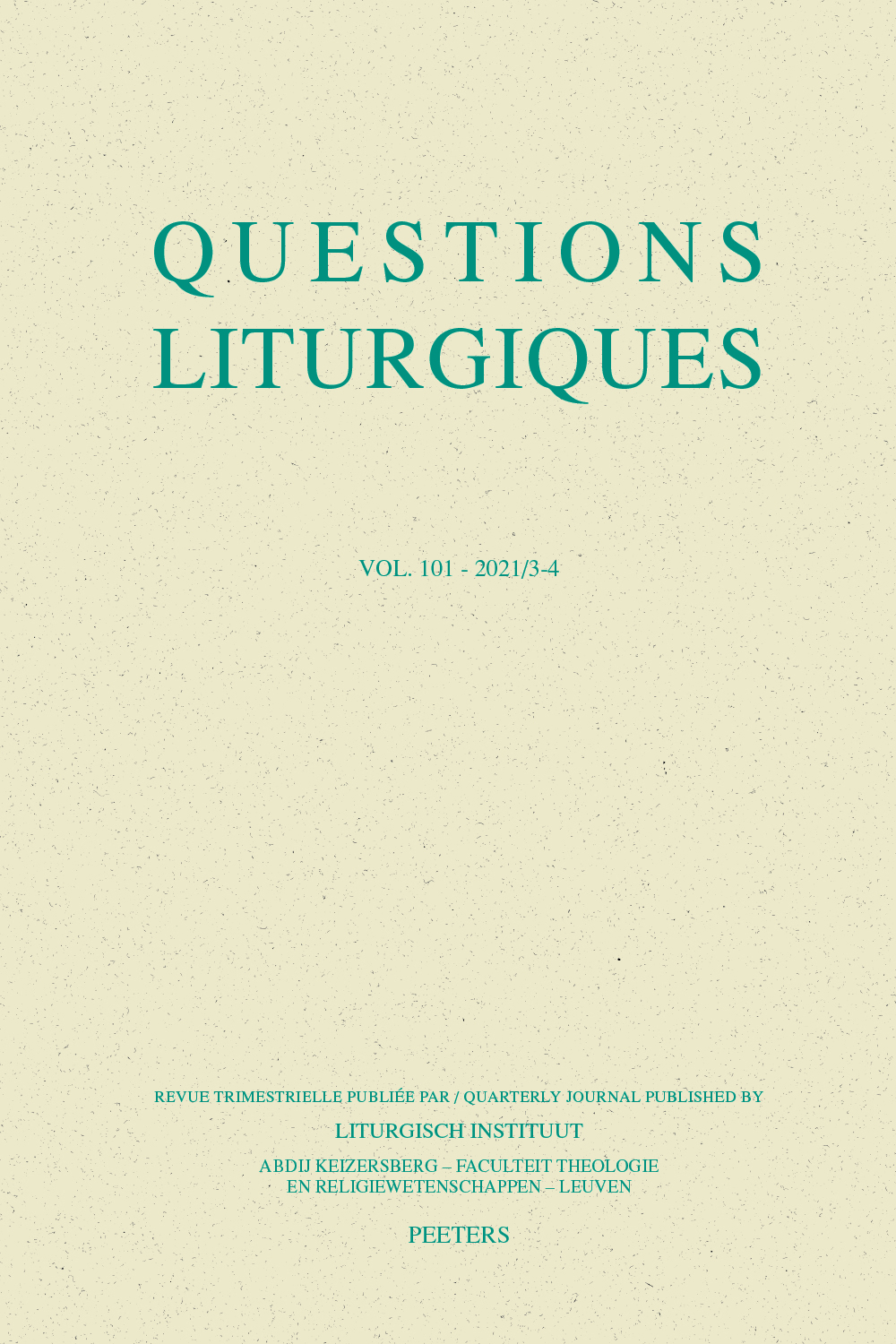 previous article in this issue previous article in this issue | next article in this issue  |

Preview first page |
Document Details : Title: Reflections on the Eucharistic Theology of Book II of Joost van den Vondel's Didactic Poem Mysteries of the Altar Author(s): JOBY, Christopher Journal: Questions Liturgiques/Studies in Liturgy Volume: 92 Issue: 3 Date: 2011 Pages: 195-220 DOI: 10.2143/QL.92.3.2146554 Abstract : In 1645, the Dutch poet, Joost van den Vondel (1587-1679), published a didactic poem, Altaergeheimenissen (Mysteries of the Altar), which is a defence of Catholic Eucharistic theology. Vondel divided the poem into three books, and in this article I discuss in detail the second of these books, Offereere (Worship of the Sacrifice). As the title suggests, in this book Vondel argues that the consecrated Eucharistic host should be worshipped, and he uses a number of approaches to try and convince the reader of this. These include typological exegesis, analogia gratiae, and an appeal to the authority of the early Church Fathers. He also recounts miracles associated with the host, in order to establish that it is far more than mere bread, and devotes a significant proportion of the book to arguing that because the host is the focus of processions, above all those associated with the Feast of Corpus Christi, it is therefore worthy of being worshipped. In this article, I evaluate the merits of each of these arguments in turn, and consider the extent to which they may lead the reader to accept Vondel’s central thesis. Finally, given that we are dealing with a poem, I also consider Vondel’s use of language, in particular his use of the word teken (sign), which has often proved so divisive in the history of Eucharistic theology. En 1645, le poète néerlandais, Joost van den Vondel (1587-1679), a publié un poème didactique, Altaergeheimenissen (Les Mystères de l’Autel), qui est une défense de la théologie catholique de l’Eucharistie. Vondel a divisé le poème en trois livres, et dans cet article je discute en détail le deuxième de ces livres, Offereere (la Vénération du Sacrifice). Comme le titre l’indique, dans ce livre Vondel soutient que l’hostie doit être vénérée, et il emploie plusieurs arguments pour en convaincre le lecteur/la lectrice. Parmi ces arguments sont l’exégèse typologique, l’analogia gratiae, et un appel à l’autorité des Pères de l’Église. De plus, Vondel raconte des miracles associés avec l’hostie, afin d’établir qu’elle est bien plus que du simple pain, et il consacre une part considérable du livre à soutenir que, parce que l’hostie est le centre des processions de l’Église Catholique, surtout celles qui sont associées avec la Fête-Dieu, elle est digne d’être vénérée. Dans cet article, j’évalue la force de chacun des arguments de Vondel, et je considère dans quelle mesure ces arguments pourraient convaincre le lecteur/la lectrice de la force de sa thèse centrale. Finalement, étant donné que nous traitons ici d’un poème, je discute aussi comment Vondel emploie le langage, surtout comment il emploie le mot teken (signe), qui a été la source de tant de discorde pendant l’histoire de la théologie eucharistique. |
|


